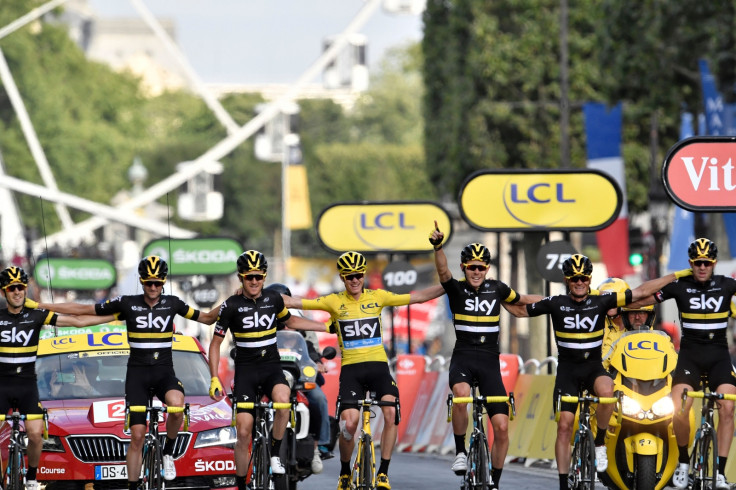Chris Froome writes his name in history with third Tour de France triumph

KEY POINTS
- The 31-year-old becomes the first Briton to win back-to-back titles.
- Romain Bardert finishes second with Nairo Quintana in third.
Chris Froome has won his third Tour de France, becoming the first Briton in the history of cycling's showpiece event to successfully defend the title. The 31-year-old sealed a thoroughly comprehensive victory riding down the Champs Elysees in Paris at the end of the mammoth 3500km race.
With a lead of over four minutes at the start of stage 21, the Froome and his Team Sky teammates were able to savour the processional ride from Chantilly, linking arms as they made their way into the French capital. The Kenyan-born rider even handed out bottles of beer to his teammates as they cruised along the final stage on a pressure-free afternoon.
André Greipel broke away from the peloton in a sublime sprint to seal stage 21 in frantic close to the race that saw a handful of riders go down. Froome and Team Sky however kept themselves well clear of the fracas, linking arms again as they crossed the finishing line together.
Frenchman Romain Bardert finished in second place with Nairo Quintana claiming the final podium spot in third.
Froome becomes the first man to win back-to-back titles since Miguel Indurain in 1995 and becomes just the eighth man to win three Tour titles, joining an exclusive fraternity alongside Greg LeMond, Louison Bobet and Philippe Thys and five-time winners Miguel Indurain, Eddy Merckx, Bernard Hinault, and Jacques Anquetil.
The Briton has enjoyed an eventful Tour, twice crashing on stages 12 and 19. After a collision involving Richie Porte, Bauke Mollema and a camera motorbike, he memorably took off on foot and ran up Mont Ventoux with his bike out of action.
During a treacherous stage 19, he skidded over a white line in rain-soaked conditions and was forced to continue his race riding teammate Geraint Thomas' bike. Despite that, he ended the stage having extended his lead at the summit of the general classification.
© Copyright IBTimes 2024. All rights reserved.






